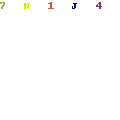Ghana is a country located in West Africa. With a population of around 30 million people, it is one of the most populous countries in the region. Ghana is a constitutional republic and its military consists of three branches: the Ghana Armed Forces, Navy and Air Force. The Ghana Armed Forces are responsible for defending the country’s borders and sovereignty, as well as providing security to its citizens. In terms of defense spending, Ghana spends approximately $600 million annually on its military, making it one of the highest defense spending nations in Africa. The country also participates in several United Nations (UN) peacekeeping missions such as those in Sudan and Liberia. Ghana is also a member of both the Economic Community of West African States (ECOWAS) and African Union (AU), and has close ties with other ECOWAS members such as Nigeria and Côte d’Ivoire. See naturegnosis to learn more about the country of Ghana.
Defense
The defense encompasses (2009) 13,500 troops enlisted and is organized into six battalions, seven patrol vessels and nine combat aircraft. Ghana has no semi-military security forces. The material is of varied, mainly Western, origin. Defense costs decreased from 1.0% to 0.7% of GDP in 1985-2007.
Ghana participates in UN peacekeeping efforts in Ivory Coast (UNOCI), Congo (Kinshasa) (MUNOC), Lebanon (UNIFIL) and Liberia (UNMIL), as well as observers in four other countries. To see related acronyms about this country, please check ABBREVIATIONFINDER where you can see that GHA stands for Ghana.

Vice President John Atta Mills participated as a candidate for the ruling party and supported by Rawlings in the January 200 presidential elections. The NPP also triumphed in the parliamentary elections, with the party gaining 97 out of 200 seats, while the former government party had to settle for 86. Kufuor assumed the presidency, and it was in fact the first time in the country’s history that a presidential change had taken place on a democratic basis.
Ghana continues to be the scene of clashes between various clans. In late 2001, the Mamprusi and Kusasi clans clashed, leaving 50 dead. In March 2002, new clashes occurred, which included cost King Ya-Na Yakubu Andani II, representative of the Andani clan. 27 others were killed. The government put the country in exceptional condition and commanded the military to separate the two clans. The Mamprusi clan has traditionally supported NPP, while Kusaki has supported NDC.
- COUNTRYAAH: Do you know where is Ghana on the world map? Come to see the location and all bordering countries of Ghana.
Kufour approved the creation of a Reconciliation Commission to investigate human rights abuses under the 22-year military dictatorship. The Commission had similarities with similar commissions in other African countries and could impose impunity on witnesses. It got tasked with investigating 200 cases of missing people under Rawling’s military governments.
In May 2003, the IMF approved an agreement with the Poverty Growth and Reduction Program in Ghana. As part of the agreement, Ghana received DKK 258 million. US $ to fund government reform program for the period 2003-05. As part of the program, there was a sharp slowdown in public spending. On the other hand, an annual economic growth of 4.9% was forecast and a reduction in inflation.
In June, the Government of Ghana signed an agreement with the African Development Fund on a loan to strengthen the health sector. The so-called «Health Project III» aimed to curb the spread of AIDS/HIV and malaria as well as reduce child mortality and poverty.
In July, the government renewed the state of emergency in the country’s northern province, Dagbon, to keep the conflict in the area under control, although the situation had a negative impact on trade with neighboring Burkina Faso.
Defense and security
The violence and civil wars that have destabilized many neighboring states since the 1990s have not affected Ghana. The Ghanaian armed forces today are controlled by the civil administration and participate in both the regional peacekeeping missions of the Ecowas and the African Union, as well as those of the United Nations. In particular, Ghanaian contingents are present in Lebanon, Liberia, Ivory Coast, the Democratic Republic of Congo, South Sudan and Mali.
The democracy of alternation
The December 2008 elections were an important test to verify the strength of democratic institutions in Ghana. Nana Akufo-Addo, the candidate of the party of outgoing president John Kufuor (Npp), won the first round of the presidential elections with 49% of the votes, while the challenger John Atta-Mills (Ndc) won 48% of the votes.. In the second round, Atta-Mills won by half a point (50.23% of the votes). The result was immediately accepted by Akufo-Addo: the decision was not at all obvious, given that in other African elections (Kenya, Ivory Coast) much smaller margins gave rise to widespread protests and violence.
The transfer of power between the Npp and the NDC, also confirmed in the elections of December 2012, marks an important step towards the consolidation of democracy: this is the second case of transfer of power between antagonistic political forces conducted in a peaceful way, after the one that took place in 2000 between Jerry John Rawlings (Ndc), who cannot be re-elected personally, and Kufuor (Npp).